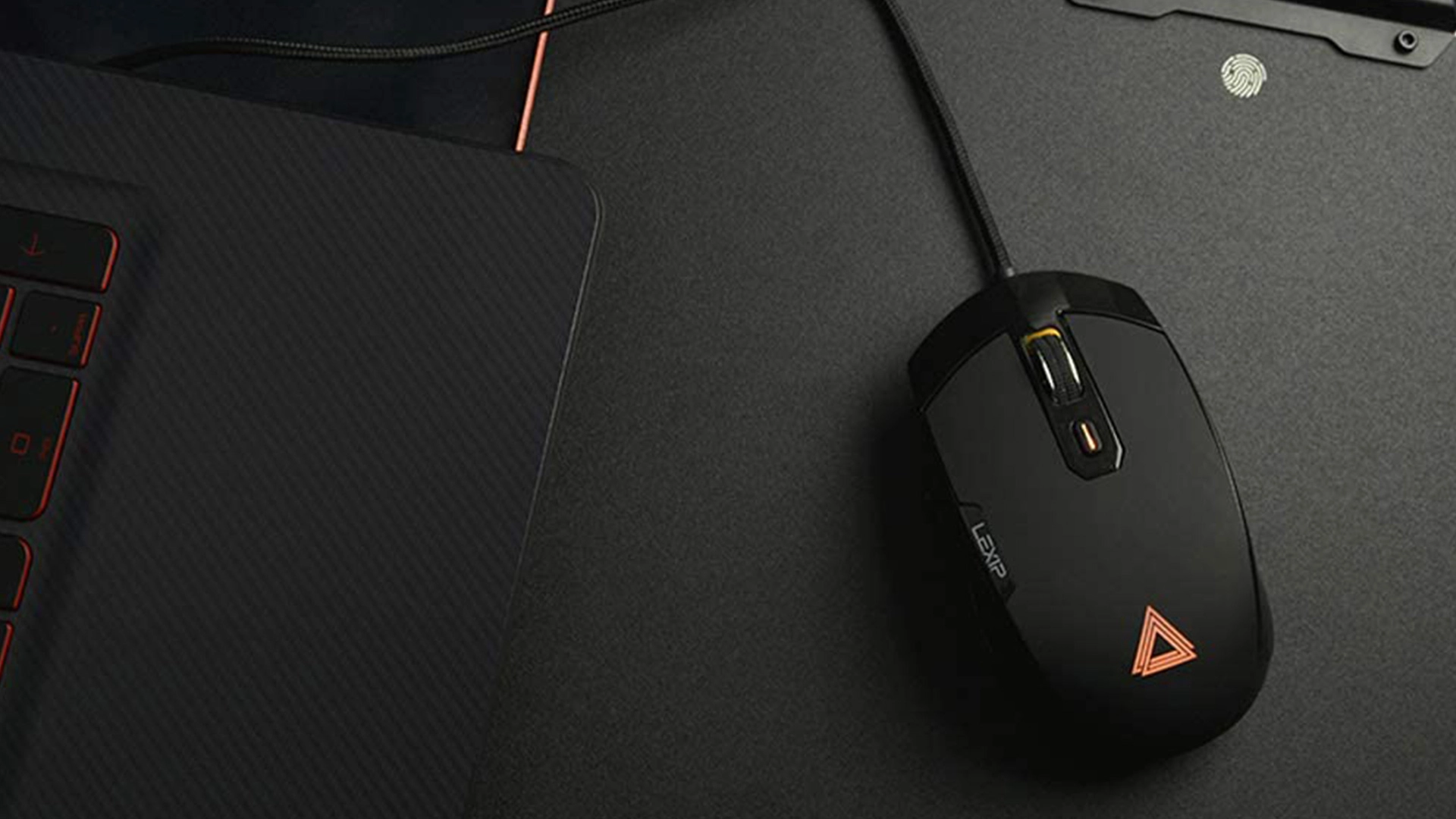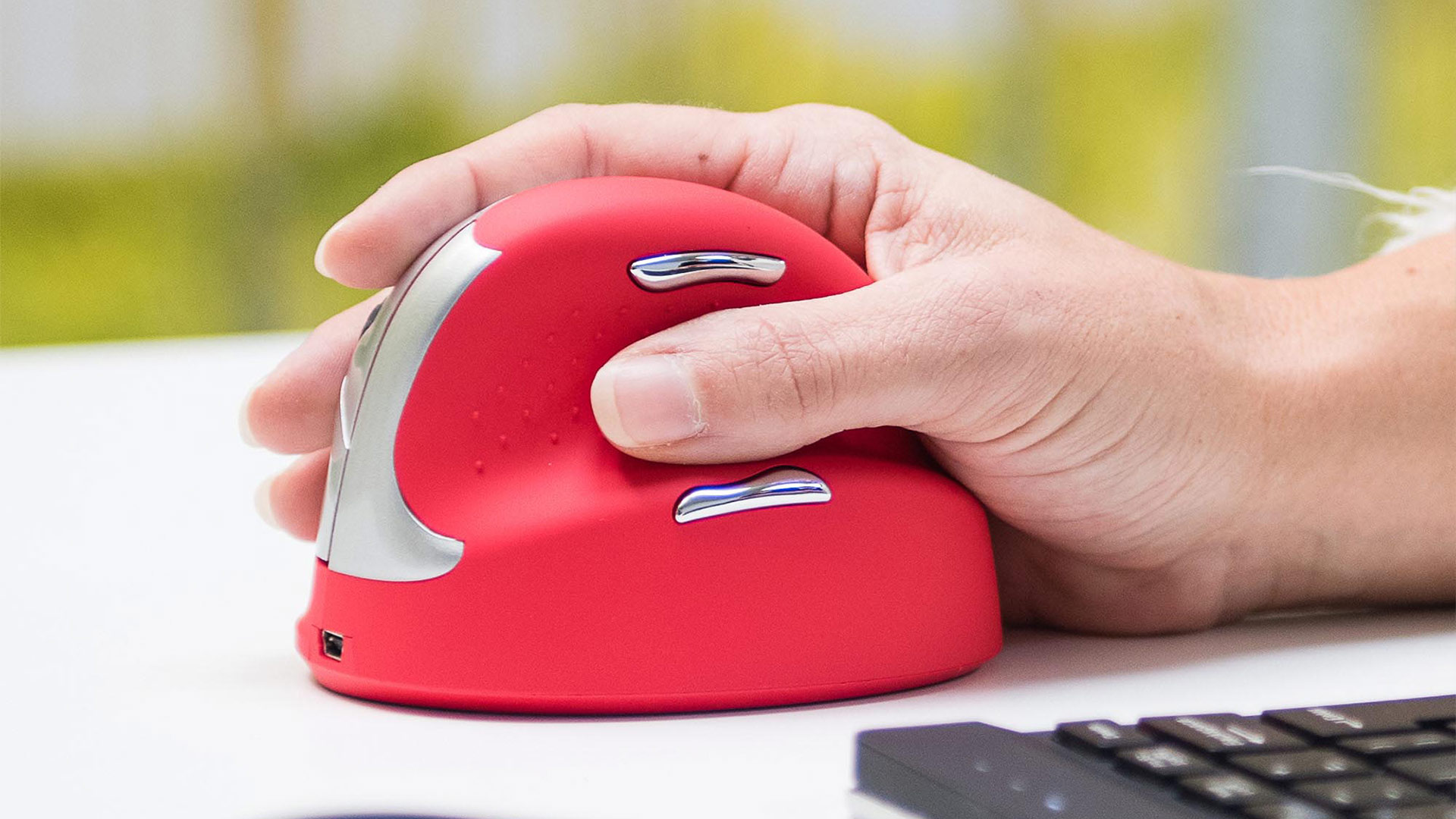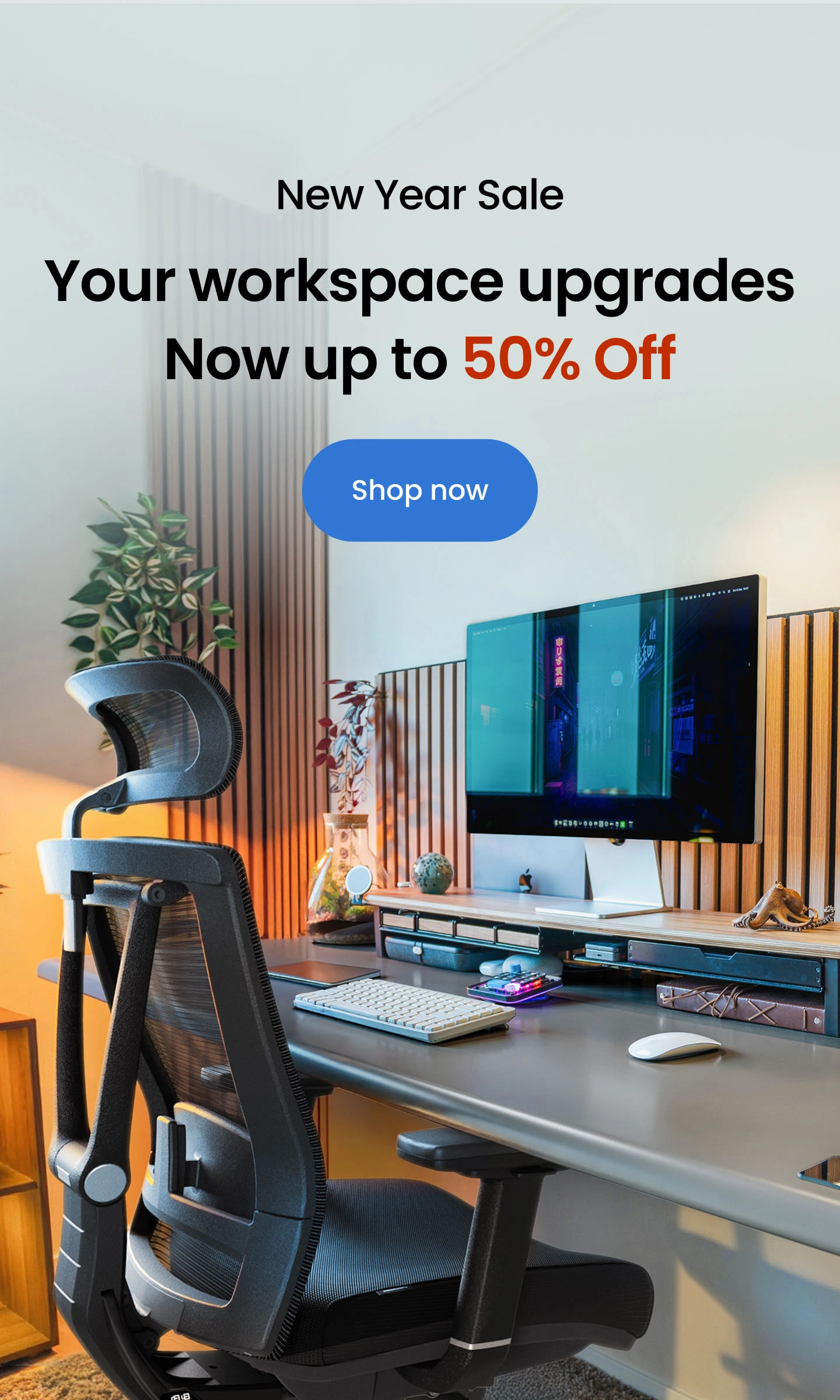
Forearm Pain from Using Mouse and How to Improve It
Table of Contents
It’s common for people who work behind a desk for prolonged periods to have certain physical complaints. Although lower back pain is the most common, forearm pain is another typical ailment that a great part of the population suffers. Some of the common symptoms include cramps, tingles, or even heaviness on the arms or shoulders.
If you’re constantly feeling discomfort in your arm or forearm and would like to know the reason and how to treat it, stay with us for a little while. We’ll explain everything you need to know regarding this phenomenon so you can treat it in time and lead a more comfortable lifestyle.
What is a “Mouse Arm”?
“Mouse Arm” isn’t a typo. It’s a condition, which is known in the medical field as “Mouse Arm Syndrome.” It is a term used to describe discomfort and pain in the shoulder and arm, typically the dominant ones. This physical complaint originates from misuse and overuse of computer mice. This condition is considered a Repetitive Strain Injury, and some experts compare it to tennis elbow.
How Does Using a Mouse Cause Arm Pain?
There are a few reasons why you might have forearm pain from typing. Start thinking of the whole process that implies using a computer mouse. You'll find out that you're actually using several muscles in your body: you're rotating your shoulder, your forearm is completely extended, and your wrist is constantly rotating and gripping the mouse so you can maneuver your cursor as you use the computer.
Furthermore, certain muscles in the neck and the back are also involved in the process, such as the rhomboids or the levator scapulae.
Since using a mouse is a repetitive activity, after a while, your muscles will overstretch. If you don't stop for a while, the muscles can become stressed, which leads to pain in all the parts involved. Hence, the "mouse arm" is activated and will start bugging you for quite a while.
How to Relieve Arm Pain
It can be complicated to go through your day comfortably if you’re constantly struggling with pain in your right forearm and wrist nearly every day and have no idea of how to treat it. Here we have a few ways in which you can improve this condition.
Before we start, we must mention that some adjustments in the ergonomics of your workstation, along with constant exercise, can help you feel better in the long run. However, if the pain persists, we highly advise you to seek help from your physician.
With that being said, here we have some tips on how to treat pain in the right elbow and forearm.
1. Reposition your mouse and place it closer toward your body
Firstly, let’s try “modifying” the position of the source of the problem. Place your mouse closer to you to reduce overreaching and put your arm and shoulder under too much stress.
One way to do this is by replacing your current keyboard with a TKL option, which lacks the numeric pad, and, therefore, is relatively more minor. This way, you will be able to place the mouse closer to the keyboard and near your body simultaneously.
Although this may seem like a small change, it can actually be meaningful, according to a few studies. It will decrease the muscle activities in those areas that could cause arm pain.
You can also consider replacing your mouse with a roller bar mouse. These mice are one of the many office accessories you can choose to improve the ergonomics in your workstation, especially considering that it eliminates the chances of overreaching, virtually speaking.
2. Minimize forearm pronation
Another common cause of pain in the right forearm and hand is forearm pronation for prolonged periods. It’s very common for people to turn their palms to face the desk surface while you’re using your mouse. This can cause stress in the muscles in the posterior area of your forearm.
You can minimize forearm pronation if you change your mouse for a more ergonomic option, like a vertical mouse or perhaps a pen mouse. These mice force you to place your hands in a "neutral" position, which prevents the muscles from becoming stressed and, therefore, relaxing the forearm.
3. Practice the right sitting posture
It’s important for any person who works on a computer to buy an ergonomic chair that keeps their body fully supported while they’re working, allowing them to sit comfortably for prolonged periods while promoting movement. You can find out more about the ergonomic keyboard position to learn how you can sit comfortably and avoid feeling strained at the end of your work session.
4. Modify your workstation and make it more ergonomic
As mentioned in the previous section, an ergonomic chair is important. However, there are tons of other objects you should also consider replacing or acquiring. For instance:
- A keyboard and mouse tray can help you place your peripherals in a more appropriate position so you can use them with more comfort.
- If you’re using a laptop and a monitor, a laptop and monitor stand can help you place your screens at a comfortable distance so you can prevent stretching your neck to be able to see the screen properly.
- Last but not least, an ergonomic wrist rest can help you keep your wrist fully supported and comfy while you’re using your mouse, helping you prevent pain in the right elbow and forearm.
You can acquire these accessories and many other pieces of ergonomic furniture via the employee purchase program available at Autonomous. You will be able to obtain these items at special pricing, helping you build a more comfortable workstation in little time and without spending too much money.
5. Exercise
There are tons of exercises you can do. For instance, shoulder shrugs to strengthen your neck, or perhaps chest, arm, and wrist stretches. These exercises don't have to be too meaningful – however, constant practice can help you become healthier in the long run.
Preventative Measures for Mouse Arm
Preventing mouse arm pain is easier than dealing with its consequences. Incorporate these practices into your routine to keep your arm and wrist pain-free:
- Take Regular Breaks: Prolonged mouse use can strain muscles. Use techniques like the Pomodoro method, which encourages short breaks every 25 minutes, to rest your arm and stretch.
- Switch Hands: Alternate between your dominant and non-dominant hand for mouse use. While it may feel awkward initially, this reduces the repetitive strain on one side of your body.
- Keyboard Shortcuts: Learn and use keyboard shortcuts to minimize mouse reliance. This not only reduces hand movement but also speeds up your workflow.
- Use Alternatives: Explore tools like voice-to-text software, stylus pens, or trackpads to diversify how you interact with your computer.
Adopting these habits can significantly reduce the likelihood of developing mouse arm pain.
Choosing the Right Mouse for Your Needs
The type of mouse you use plays a critical role in preventing arm pain. Here are some ergonomic options to consider:
- Vertical Mice: Designed to keep your hand in a handshake position, vertical mice reduce forearm pronation and wrist strain.
- Trackball mice require minimal arm movement, making them a great option for reducing repetitive strain. You control the cursor by rotating a stationary ball.
- Lightweight Mice: A lighter mouse requires less effort to move, decreasing strain on your wrist and arm.
Factors to Consider:
- Size: Choose a mouse that fits your hand comfortably. Oversized or undersized mice can lead to unnecessary strain.
- Grip Style: Consider how you hold the mouse (palm, claw, or fingertip grip) and pick a design that complements your natural posture.
- Adjustability: Mice with customizable sensitivity or weight can be tailored to your preferences.
Investing in the right ergonomic mouse can make a world of difference in maintaining arm health.
Common Myths About Mouse Arm Pain
Many misconceptions about mouse arm pain can prevent people from addressing the issue properly. Let’s debunk a few:
Myth 1: “Arm pain only happens to gamers.”
While gamers are often affected due to extended mouse use, anyone who works on a computer for long periods can develop mouse arm pain.
Myth 2: “Expensive ergonomic tools solve all problems.”
While ergonomic equipment helps, it’s not a magic fix. Proper posture, regular breaks, and good habits are equally important.
Myth 3: “Pain will go away if I stop using the mouse.”
Resting helps, but ignoring the underlying causes, such as poor posture or workstation setup, can lead to recurring pain.
Conclusion
Mouse arm pain is a common but manageable issue for anyone who spends extended hours on a computer. By recognizing the symptoms early and addressing the root causes, you can prevent the condition from worsening.
Focus on creating ergonomic desk setup diagrams, adopting good habits like taking breaks and practicing proper posture, and investing in tools like ergonomic mice. Don’t forget to incorporate preventative measures, such as alternating hands or using keyboard shortcuts, to reduce strain.
Ultimately, maintaining a balance between productivity and self-care is key to keeping mouse arm pain at bay. Prioritize your health, and your work will benefit as well.
Spread the word
.svg)










